If one is to believe the legend behind Final Fantasy‘s naming, it’s unlikely that Hironobu Sakaguchi ever envisioned a future where the game would spearhead the creation of one of gaming’s most important series. But here we are more than 35 years later, and the Final Fantasy series still one of the premier RPG franchises in gaming and it’s 16th entry arriving earlier this year to widespread critical acclaim. Many fans’ first exposure to the series was thanks to Final Fantasy VII, but the first six games in the series, the 2D Final Fantasy games, are still held as many fans’ favorites. Playing the recent Pixel Remasters of the series makes it easy to see why.
Spanning the salad days of the franchise between 1987 and 1994, the Pixel Remasters are a look back at the origins of one of gaming’s most important and impactful series. These early Final Fantasy games, the first 6 in the franchise, helped to not only endear the series to fans but to also lay the foundations of what mechanics and elements became synonymous with role-playing games. There’s a reason that fans mention Final Fantasy and Dragon Quest in the same breath. Without these two series, it’s likely that the console RPG as we know it would not exist.
That said, these foundational Final Fantasy games can present as a bit of a mixed bag, especially in the earlier titles as the series was finding its footing. As a result, the entire Pixel Remasters package has some highs and lows, making it due for a ranking of the games it contains. Considering that it’s possible to purchase each of these games individually, some of the Pixel Remasters are definitely worth your time and money more than others.
6. Final Fantasy II
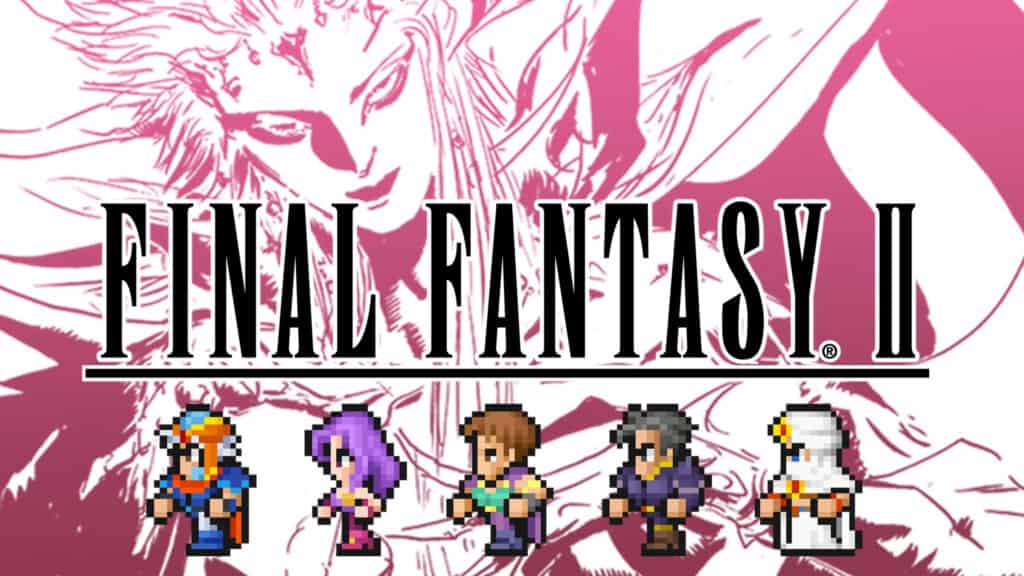
Starting things off at the bottom of the list is Final Fantasy II. Ever the black sheep of the early Final Fantasy games, II is noteworthy for how it establishes the anthology nature of the series. Instead of continuing the story and mechanics of the first Final Fantasy, Final Fantasy II takes a wildly different approach in nearly every one of its elements and systems. Players still fight in turn-based battles, but they no longer gain experience and level up like in the first game. Instead, players must use skills in order to level them up, meaning that the party will only improve in the skills it uses most.
It’s a novel idea, and one that would go on to be the foundation of its own RPG series at Square, but the limits of technology at the time make this obtuse leveling system nearly impossible to wrap your head around. Thankfully, the Boosts that the Pixel Remasters afford to players make this once maddeningly difficult game much easier to play through. The storytelling and characterization of the game’s heroes is definitely a step up from the first game in the series, and the password system is another interesting wrinkle to NPC interactions, but otherwise Final Fantasy II is easily the weakest of the first six games.
5. Final Fantasy
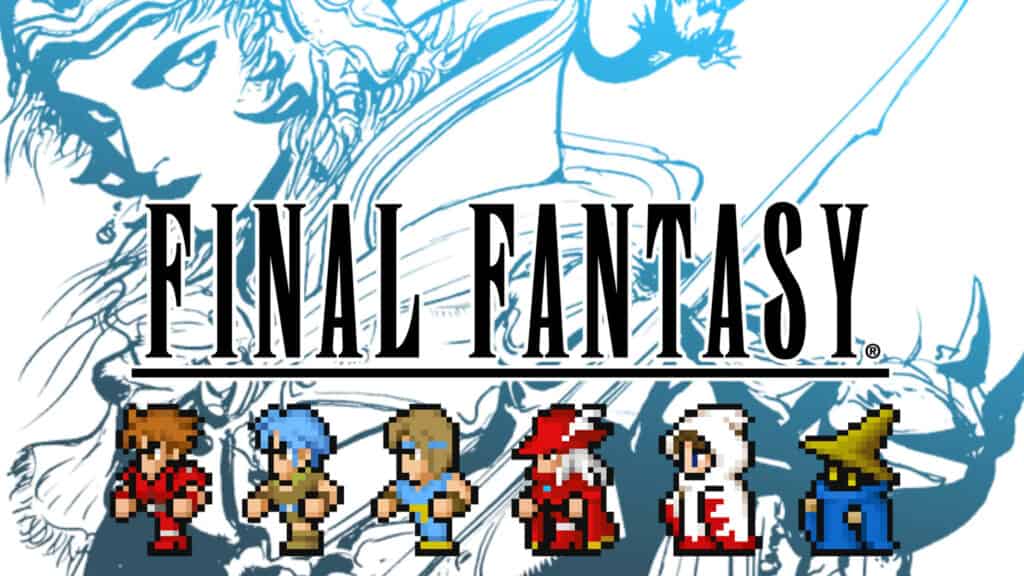
Slightly eking out a win over its direct sequel is the first game in the franchise, Final Fantasy. Although Dragon Quest beats Final Fantasy to the punch in being the first game representative of what would come to be known as JRPGs — Japanese Role Playing Games — Final Fantasy pretty much take’s Yuji Horii’s classic game’s formula and runs with it. Rather than have the action in turn-based battles take place from a first-person perspective, Final Fantasy shifts it to third person so players can see every attack coming from their party members. And speaking of the party, Final Fantasy expands the lone hero of Dragon Quest into the Four Warriors of Light, even going so far as to allow players to customize their classes and names at the game’s outset.
Everything about the original Final Fantasy is simply bigger and better than the other RPGs that were its contemporaries. Looking at it in this context, it’s hard to argue against just how important of a game it was on the Famicom and NES. Still, it is fairly primitive when compared to later entries in the franchise, and it does feature some unfair difficulty spikes that can see the player soft-locked behind certain encounters without engaging in some tedious grinding. That said, the Pixel Remaster version of this JRPG classic offers the advantage of boosting XP and Gold gains, making that process much, much easier.
4. Final Fantasy III
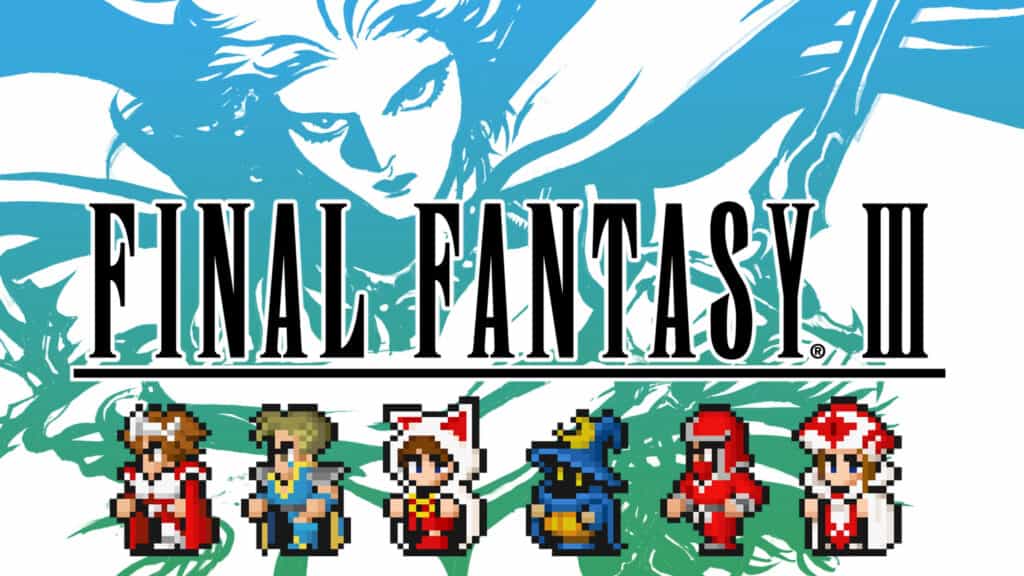
After the radical departures of Final Fantasy II, Final Fantasy III is both a massive advancement for the series and a return-to-form of sorts. Going back to the “blank slate” template of the original Final Fantasy‘s four heroes, players begin Final Fantasy III by controlling four young adventurers who they get to name and then shape as they see fit using the game’s new Job system. Rather than assign party members with static classes, the Job system allows you to regularly switch up your party members’ job assignments, providing for unprecedented freedom and customization in how you structure your party. Want a knight who’s adept at using swords but also skillful at wielding black magic? You can make that “Mage Knight” build a reality once you’ve obtained the right jobs.
Outside of the excellent experimentation and powerful options that the Job system provides, Final Fantasy III features a heatfelt narrative with greater emphasis on character development and connections between the heroes and the recurring NPCs they interact with. By the time players finally face off against the Cloud of Darkness after traversing one of the series’ longest final dungeons, there’s a true sense of contentment at having saved Final Fantasy III‘s world. Final Fantasy III doesn’t just right the wrongs of Final Fantasy II, it’s the bridge between the series’ earliest years and what would be it’s first revolutionary leap forward.
3. Final Fantasy V
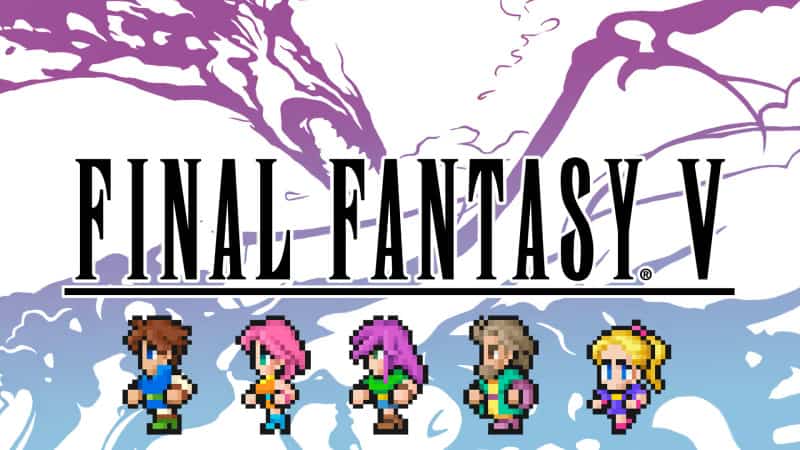
In terms of the original six Final Fantasy games that the Pixel Remasters bring to fans, perhaps none are as criminally overlooked as Final Fantasy V. For starters, this Super Famicom classic never made it to the West, as back in its time the efforts to localize games from Japan were both costly and time-consuming. Rather than use resources to port Final Fantasy V to the West after its release in Japan, Square opted for Final Fantasy VI to come to the west as Final Fantasy III. As a result, there was never an official release of Final Fantasy V in the US until the PlayStation port as part of the Final Fantasy Anthology. It’s a shame, too, because many fans (including current developers at Square Enix) cite Final Fantasy V as their favorite game in the series.
Being able to play the version included in the Pixel Remasters series helps to point out why Final Fantasy V is so loved, as it’s both one of the best RPGs from the 16-bit era, an uncharacteristically light-hearted and humorous tale nestled between the melodrama of Final Fantasy IV and the post-apocalyptic dread of Final Fantasy VI. Not only that, the Job system from Final Fantasy III makes a triumphant return. Only this time, there are more jobs and players have the ability to more fully customize each party member’s build, mixing and matching abilities to create some truly unique and powerful combinations. Topping it all off is one of the weirdest villains in the franchise, with our heroes facing off against a sentient evil tree. To say they don’t make games like this anymore is an understatement.
2. Final Fantasy IV
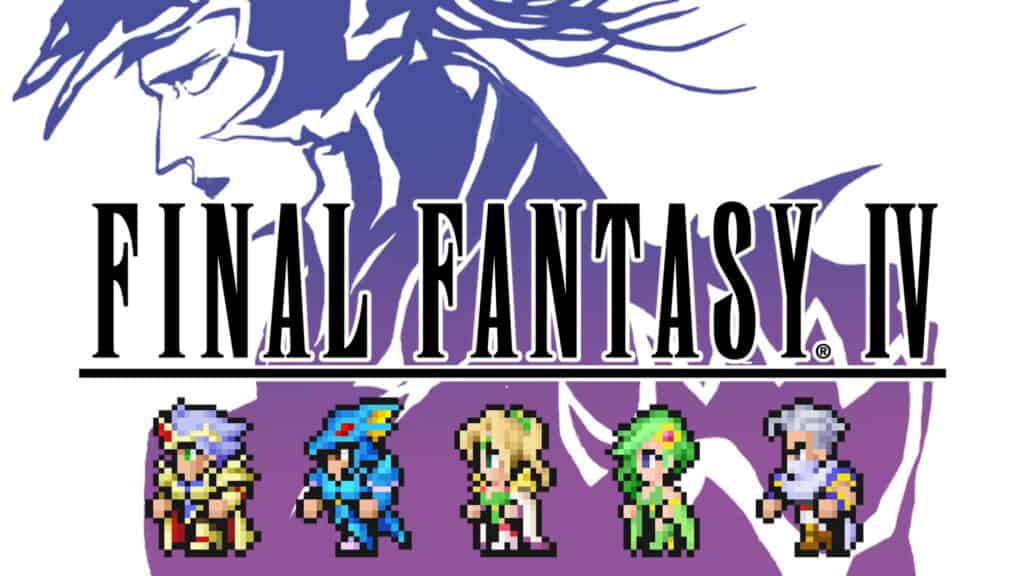
For many fans, the answer over which Final Fantasy is the best in the series comes down to just a few influencing factors. One of these is the age they were when they first played their favorite game in the series, with several longtime fans having been with the franchise since its very beginning. As the first 16-bit entry in the series, Final Fantasy IV was, for many, the first experience they had with the franchise. Those of us in the West knew the game as Final Fantasy II. Cross-cultural naming differences aside, the core content is the same. This was the first “next-gen” entry in the Final Fantasy series, and it shows in every conceviable way.
The narrative is more advanced and developed than any of its predecessors or its contemporaries, presenting players with one of the most complex stories in the medium of video games for its time. Additionally, the introduction of the Active Time Battle system (or ATB) transforms the act of random battles into something infinitely more engaging as players are constantly needing to manage not just their actions but the actions of enemies, who can now act while the player is trying to execute commands. There’s a reason that Final Fantasy IV was one of the first games in the series to receive a ground-up remake, but the version included in the Pixel Remasters illustrates just how well the original holds up after all these years.
1. Final Fantasy VI
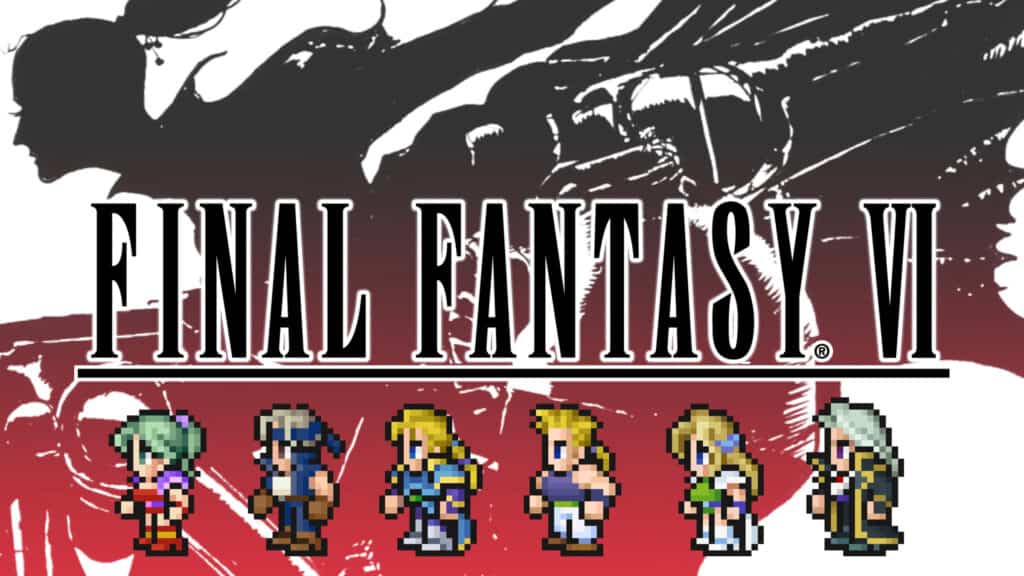
Final Fantasy VI isn’t just the best game out of the entries included in the Pixel Remasters. It’s a strong contender for the best game in the Final Fantasy series, period. As the swansong to the series’ 16-bit era and the final 2D mainline Final Fantasy, it’s clear that Square wanted to go out with a bang before entering the next phase of the franchise’s life with Final Fantasy VII. The result is that Final Fantasy VI pulls out all the stops to feature the best combat, narrative, characters, and villains of any game in the series up until that point. And, chillingly, Final Fantasy VI is the only game to ask and then provide an answer to the question, “What happens if the villains win?”.
Outside of its incredible, series-best narrative, Final Fantasy VI features one of the best ensemble casts of any game in the series and quite possibly the best magic system of any game in the series. The Espers allow for any character to learn magic, and combining that magic with each character’s innate skills and abilities can lead to some almost game-breaking levels of power among the heroes as players get into the endgame and are preparing to face off against Kefka. The Pixel Remasters are absolutely worth picking up in their entirety to experience each of these six excellent games, but if it came down to just picking one game out of the collection, Final Fantasy VI is the one most deserving of your attention.